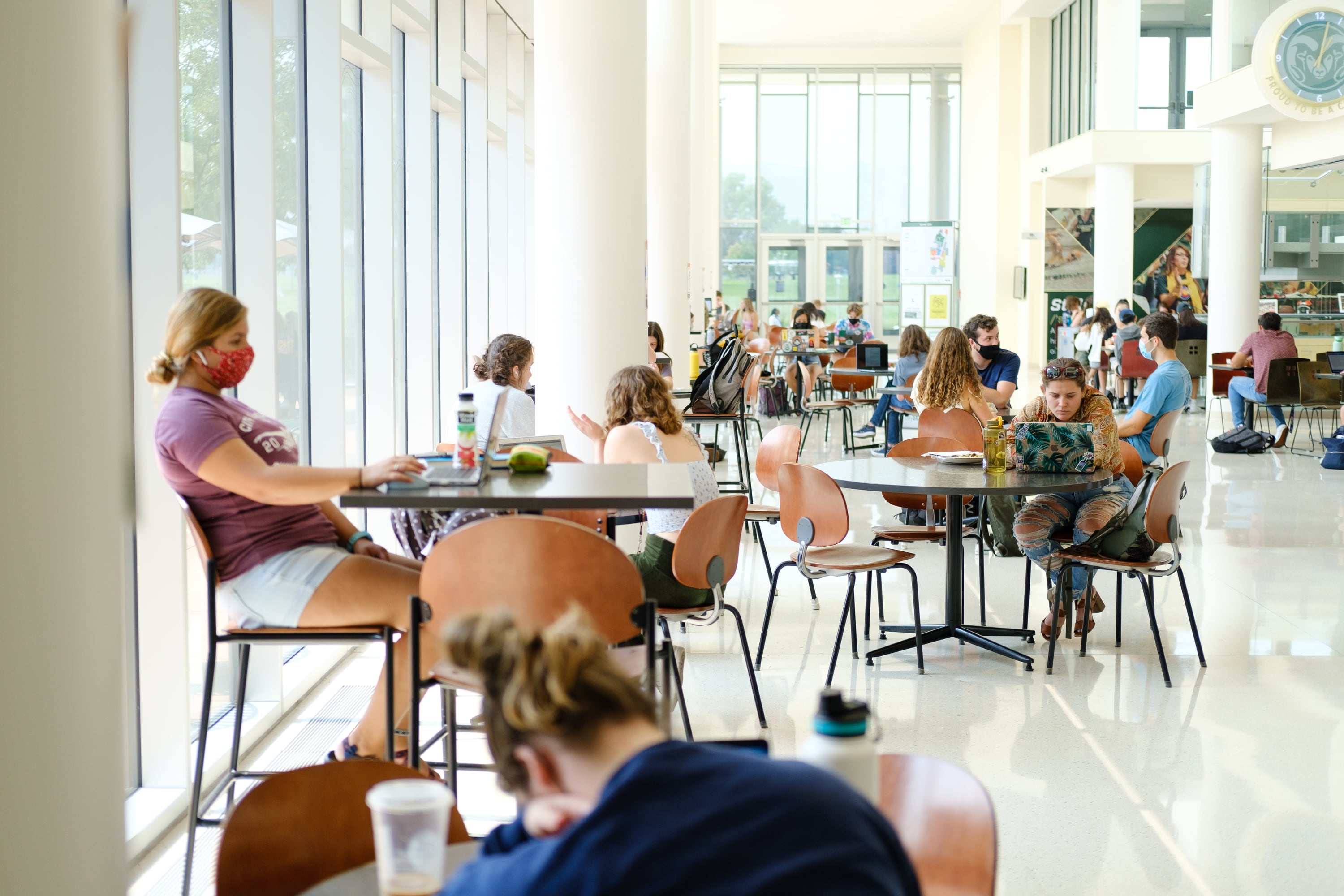Sam Jarris spent years bouncing from college to college before earning his degree. As a student with autism, he frequently found teachers and administrators to be either indifferent or hostile to what he needed to be successful.
Jarris, 31, remembers asking an instructor to change a word problem he found hard to understand because of his disability. The instructor refused, saying he wasn’t going to change his course material for one student.
“Basically I was told if I couldn’t pass the class then I wasn’t welcome to attend the school,” Jarris said.
The Colorado legislature this year will consider a proposal that aims to make the path a little easier for students like Jarris, whether their disabilities are physical or invisible.
The bill sponsored by Rep. David Ortiz, a Littleton Democrat, and drafted by the Colorado Department of Higher Education, would create a committee to recommend strategies to help students with disabilities graduate from college.
The bill also would require Colorado’s colleges and universities to report annually how many students with disabilities enroll and graduate, as well as what services the schools have available to help those students.
The legislation wouldn’t have happened without Jarris, who sent numerous emails over the years to state officials about his experiences and filed records requests asking what colleges are doing to help students with disabilities.
The bill signals a first push for more resources for students with disabilities so they have the proper tools to navigate college.
Ortiz said the bill represents an opportunity to shed light on the barriers people with disabilities encounter in college and everyday life. Ortiz, an Army veteran who uses a wheelchair, said even as a lawmaker he didn’t have the resources at the state Capitol to do his job. For example, a lift was installed in the House chambers for Ortiz to access the Speaker’s podium.
Ortiz said his experiences show the world was created for able-bodied people, not those with hidden or visible disabilities.
“If you wonder why we are four times more likely to be on the poverty line, it’s not because we don’t have the capability. It’s because we don’t have the opportunity,” Ortiz said. “And we’re not talking about the opportunity for special treatment. We’re talking about the opportunity for basic human dignity — for basic access.”
During Jarris’ time in college, disability services offices were pushed into the far reaches of campuses or hidden in libraries or obscure offices, he said.
In some cases, he found hostility toward his disability. Instead of help, college officials would blame him for not understanding the work or make excuses why they couldn’t offer him accommodations. Jarris said a dean cited academic freedom as to why the school shouldn’t accommodate his disability.
He also encountered uneven standards. Administrators said they didn’t need to provide him with services. Jarris said neurodisabilities aren’t often considered because of outdated Americans with Disabilities Act standards. He said all students with disabilities deserve to be able to be successful in college, whether they have a physical disability or have a disability like autism.
“I’ve found they’re going to try to provide you with the floor and they’re going to treat it as the ceiling,” he said. “And if you ask for anything more, then you’re a burden.”
Jarris’ diligence laid the groundwork for Carl Einhaus to begin researching the issue. Einhaus, CDHE’s senior director of student success, said he began exploring the issue thanks to Jarris.
In 2019, he surveyed schools and found that what schools collect can’t paint a picture of outcomes for students with disabilities.
“When you have that type of dynamic, it’s difficult to have an informed conversation,” Einhaus said.
Colorado isn’t alone. Nationally, few states do much to help students with disabilities in higher education, said Wendy Harbour, Association on Higher Education and Disability programs and development associate director. That’s unlike in K-12, where schools must draft individual plans for students with disabilities.
Because it’s not a focus, college can sometimes become a hostile place for students with disabilities, she said. She’s seen many students drop out and never return.
“And the page that is most visited on our website is the crisis resources,” Harbour said. “I think that says a lot right there.”
For Jarris, he said the hostile environments he’d encountered pushed him toward more and more advocacy initiatives. It’s work he said he’s good at and within his family — his uncle once chaired the state Democratic Party.
Jarris hopes that if lawmakers pass the bill, the committee would include individuals with different types of disabilities. About a quarter of the U.S. has a disability, but Jarris said people like him are typically quiet on issues that impact them, underrepresented in politics, or have trouble accessing the political system. He wants that to change.
“I’m tired of people thinking people with disabilities have everything they need,” Jarris said. “Where is the support and the critical reception for the needs of people with disabilities? This requires monumental social justice.”






